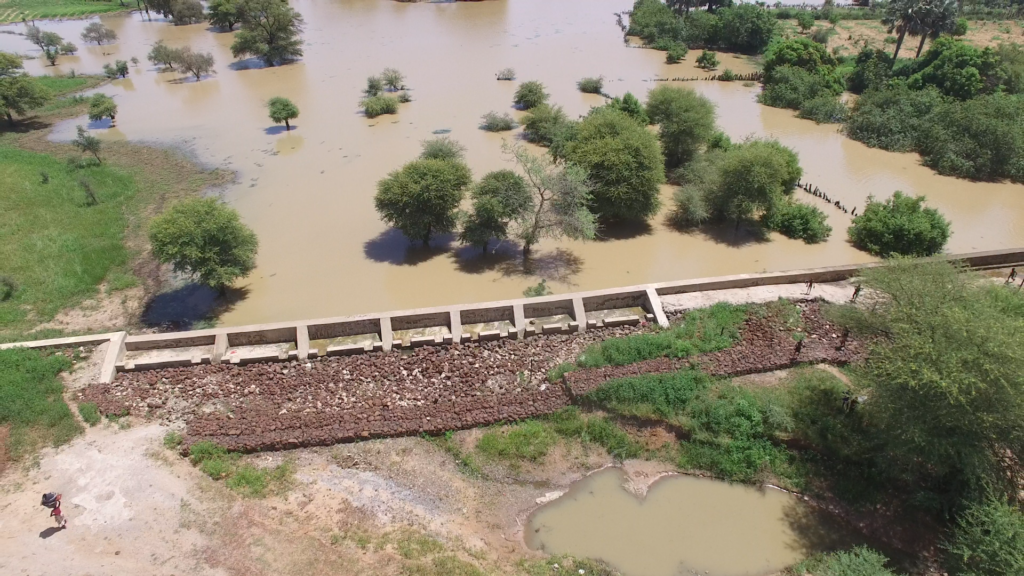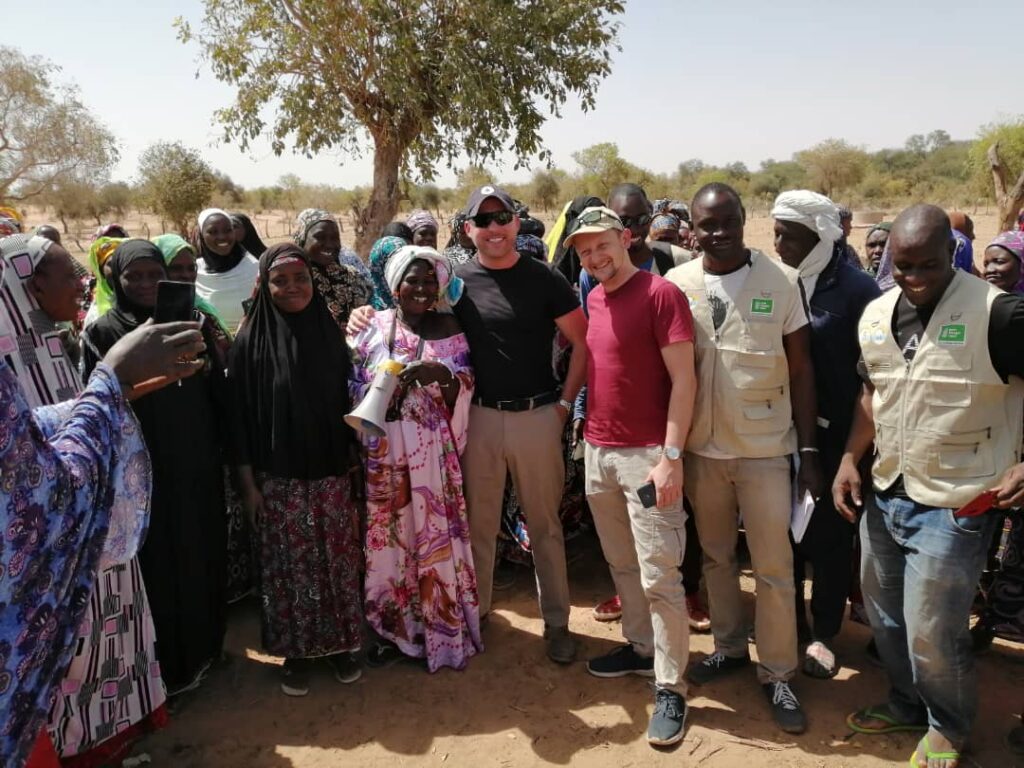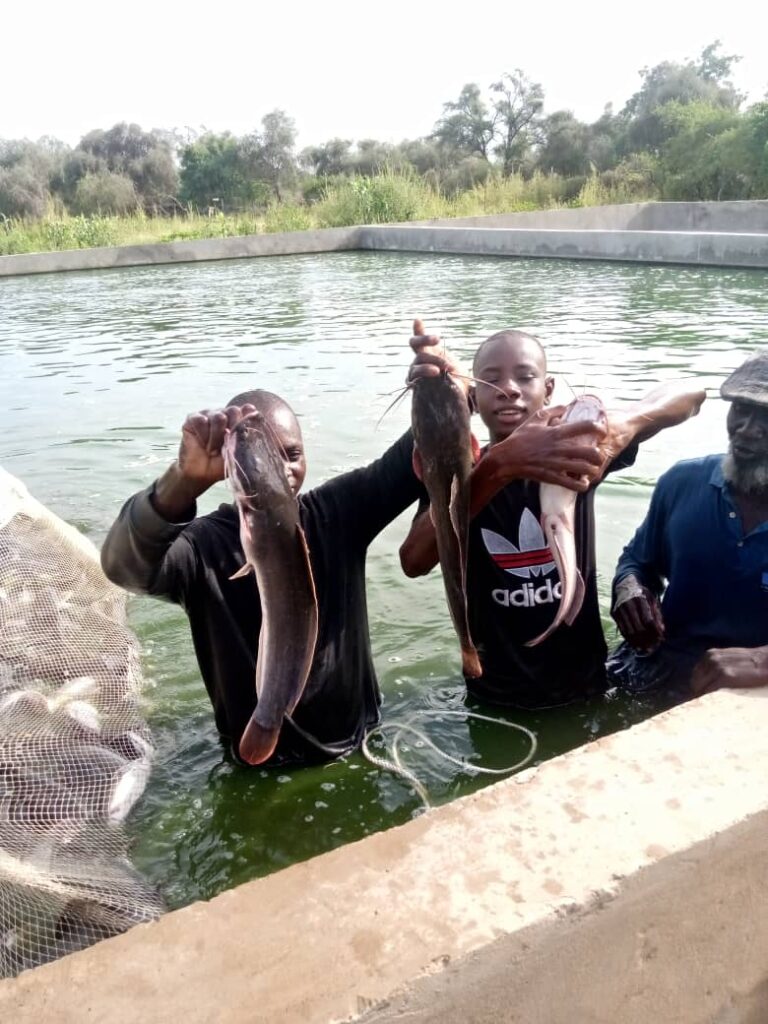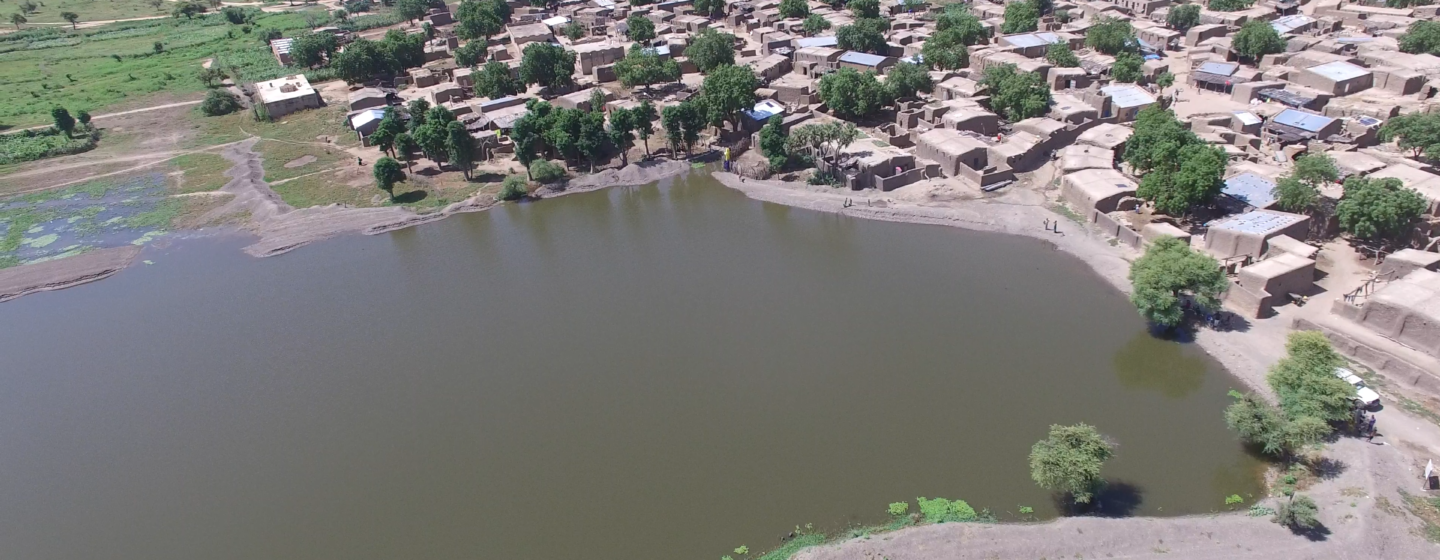In some parts of the world, climate change is an abstract concept, experienced only through articles in the media. In much of the African Sahel, however, the impact is measured by years and seasons with abnormal rainfall.
Together with Alliance2015 partner Welthungerhilfe, and with funding from the Ministry of Foreign Affairs of the Czech Republic, People in Need (PIN) is working to alleviate regional flooding and mitigate devastating droughts by building dams for water retention.
One such dam was completed in July in the village of Koungo, in the Kayes region of western Mali. Today at the reservoir’s edge, farmers, cattle keepers, and herders from adjacent community and also distant areas at the Mauritanian border, all come to access water from the dam.

The case of Koungo documents how climate change impacts our approach to planning of necessary infrastructure. The temporary dam, which held back excess water from rainfall, has stood in the same place since 1982. But over the years it has worn out and the locals have not been able to maintain and repair it. Pastoralists from the region, who came from far and paid for the water, had no reason to return.
In response, the community, working with PIN, set out to build a new, high-quality dam to protect lives and livelihoods from the shifting weather patterns.

Learning the lessons of climate change
Jan Svitálek, PIN’s Lead Advisor for Climate Change and Climate Smart Agriculture, says the dam in Koungo was designed to guard against unpredictable rainfall, to serve as a water source for the community, and to extend the agricultural growing season. The initial work was completed in early June 2020, but torrential rains were so strong and intense last year that the dam was partially breached and needed to be repaired. That work has since been completed.
“Originally, engineers built the dam to the maximum total precipitation of the last ten years, in line with the current technical standards in Mali,” Svitálek says. “The fact that the dam did not withstand the huge amount of precipitation last year is a good illustration that the climate is changing, and that torrential rains are coming more often.”

Miroslav Bálint, Deputy Ambassador of the Czech Republic in Mali, made a similar observation during a recent site visit. “Unfortunately, climatic fluctuations are becoming more and more noticeable not just in Mali, but in the entire Sahel region,” he said. “The unpredictable increase in heavy rainfall results, among other things, in a large loss of agricultural land. This is devastating for the locals, who mostly live on agriculture.”
“The design and investment into overflow structure and water dispensers had to be fortified and enlarged to protect better the body of the dam,” adds Svitálek based on the experience from Koungo.
Local and regional benefits
The new dam in Koungo was inaugurated in July. In addition to water, it provided jobs for many residents who built the structure. At 136 meters wide and with a maximum depth of 268 centimeters, the dam holds back a reservoir that, when filled, is roughly 10 hectares.
Today, the water source serves about 1,200 people from Koungo, as well as seasonal herders and nomads. “The local community has the opportunity to influence how much the dam will be used,” says Bálint. “For non-residents, they may or may not raise the price for water and thus earn some revenue to run the village.”
In addition to the dam project, PIN and Welthungerhilfe also reforested the area, supported the introduction of environmentally friendly agricultural techniques, equipped gardeners, and trained local farmers. Project manager Gaoussou Dembele says the creation of the reservoir has increased the availability of fresh fish.
“There are so many fish that when crocodiles approach they jump out of the dam and are picked up by fishermen,” Dembele says with a smile, adding that the crocodiles have been identified as a risk to the dam because they can undermine the base as they reproduce.

Dams for three other villages
In addition to the dam in Koungo, similar dams were built in the villages of Diankoute Kamara, Leya, and Kadiaba Diala. Each was created within the Czech Humanitarian Aid project funded by the Ministry of Foreign Affairs of the Czech Republic, and implemented by PIN, its Alliance2015 partner Welthungerhilfe, and local partners Stop Sahel and ADR.
As part of these projects, attention is paid to securing long-term community support. For instance, the municipality of Koungo re-established a board of directors for their dam, and its members and technicians were provided with training in administration and dam maintenance. New rules on water use and ways of enforcing the relevant fees were also established.
“Cooperation with German and local partners is very effective,” says Svitálek. “We managed to connect organisations in the field with finances provided by the Czech and German governments. In the coming years, we would like to expand our cooperation with more comprehensive work with natural resources in this relatively unstable border area.”
Authors: Jan Svitálek, PIN’s Lead Advisor for Climate Change and Climate Smart Agriculture and Miroslav Bálint, Deputy Ambassador of the Czech Republic in Mali.


